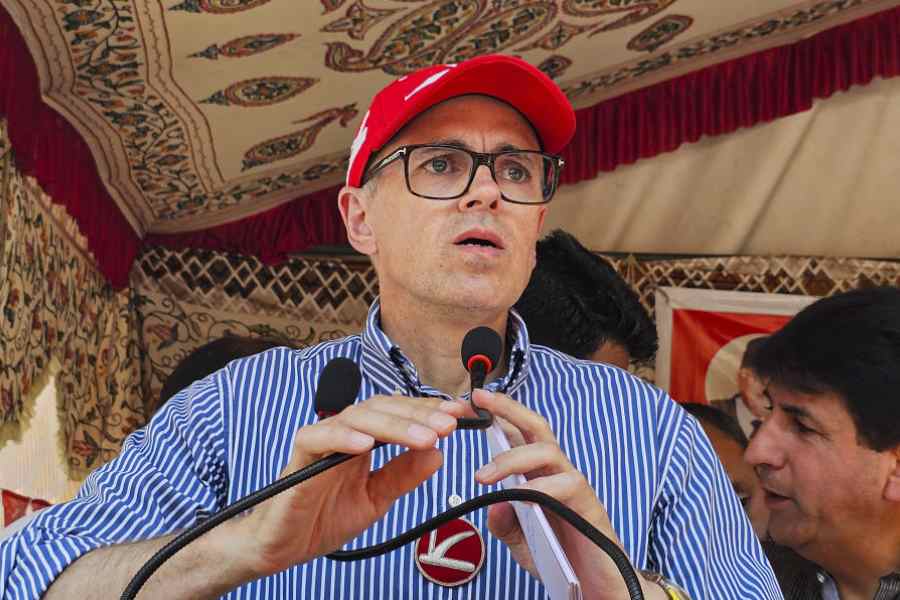The Uttar Pradesh government on Friday defended its directive requiring eateries along the Kanwar Yatra route to display the names of their owners and staff, saying the idea was to bring in transparency, avoid "potential confusion" and ensure a peaceful yatra.
On July 22, the apex court ordered an interim stay on the directives issued by the BJP-ruled Uttar Pradesh and Uttarakhand governments.
"It may be noted that the idea behind the directives is transparency and informed choice of the consumer/kanwaria regarding the food they eat during the period of the Yatra, keeping in mind their religious sentiments so that they don't, even accidently, fall foul of their beliefs," the Uttar Pradesh government said in its reply on pleas challenging the directive.
The directives asking eateries along the Kanwar Yatra routes were decried by the opposition as intended to promote religious discrimination.
The Uttar Pradesh government said in its submission to the Supreme Court that care is taken by the state to ensure that persons of all religions, faiths and beliefs coexist and equal importance is given to their festivals.
"It is submitted that the impugned Press Release was issued solely in the interest of ensuring a peaceful completion of the Kanwar Yatra, in which more than 4.07 Crores of Kanwariyas participate annually," it said.
The state government said it has imposed no ban or prohibition on the trade or business of the food sellers (except the restriction on selling non veg food), and they are free to conduct their business as usual.
"The requirement to display the names and identities of the owners is merely an additional measure to ensure transparency and avoid any potential confusion among the Kanwariyas," it added.
According to the affidavit, the directives do not impose any discrimination and the requirement to display the names and identities applies uniformly to all food sellers along the route, irrespective of their religious or community affiliations. It added that the directive is limited to the route and for less than two weeks.
The Kanwar Yatra is an annual pilgrimage during the month of Shravan performed by Shiva devotees who carry water from the Ganga from Haridwar and other holy places to offer to Lord Shiva at various places of worship across the state and even beyond the state, said the affidavit, filed through standing counsel Ruchira Goel.
It added that crores of pilgrims take part with religious fervour, many not literate, and walking barefoot. Even small confusions regarding the kind of food they are served, has the potential to hurt their religious sentiments and cause flare ups, especially in a communally sensitive area like Muzaffarnagar, the state government said.
"Such situations would obviously lead to flare ups... A mishap in the form of taking a meal unwittingly of a place that would have otherwise not been of their choice, could, for the Kanwaria, vitiate the entire Yatra, peace and tranquillity in the area, the maintenance of which is the bounden duty of the State," it added.
In 2008, it added, the apex court had even upheld the complete closure of slaughter houses in Gujarat for nine days during a Jain festival while keeping in mind the sentiments of the devotees.
The UP government said it is imperative to take preventive measures that ensure a peaceful and harmonious pilgrimage.
"Past incidents have shown that misunderstandings regarding the type of food being sold have led to tensions and disturbances. The directives are a proactive measure to avoid such situations," it said.
On July 22, the top court had issued notice to the governments of Uttar Pradesh, Uttarakhand and Madhya Pradesh and said the eateries may be required to display the kind of food they are serving whether they are vegetarian or non-vegetarian.
The top court is hearing a batch of pleas challenging the directives. Among those who filed the petitions are TMC MP Mahua Moitra, academician Apoorvanand Jha and columnist Aakar Patel, and the NGO Association of Protection of Civil Rights challenging the directives.
The Kanwar Yatra began on July 22 and ends on August 6.
Except for the headline, this story has not been edited by The Telegraph Online staff and has been published from a syndicated feed.












